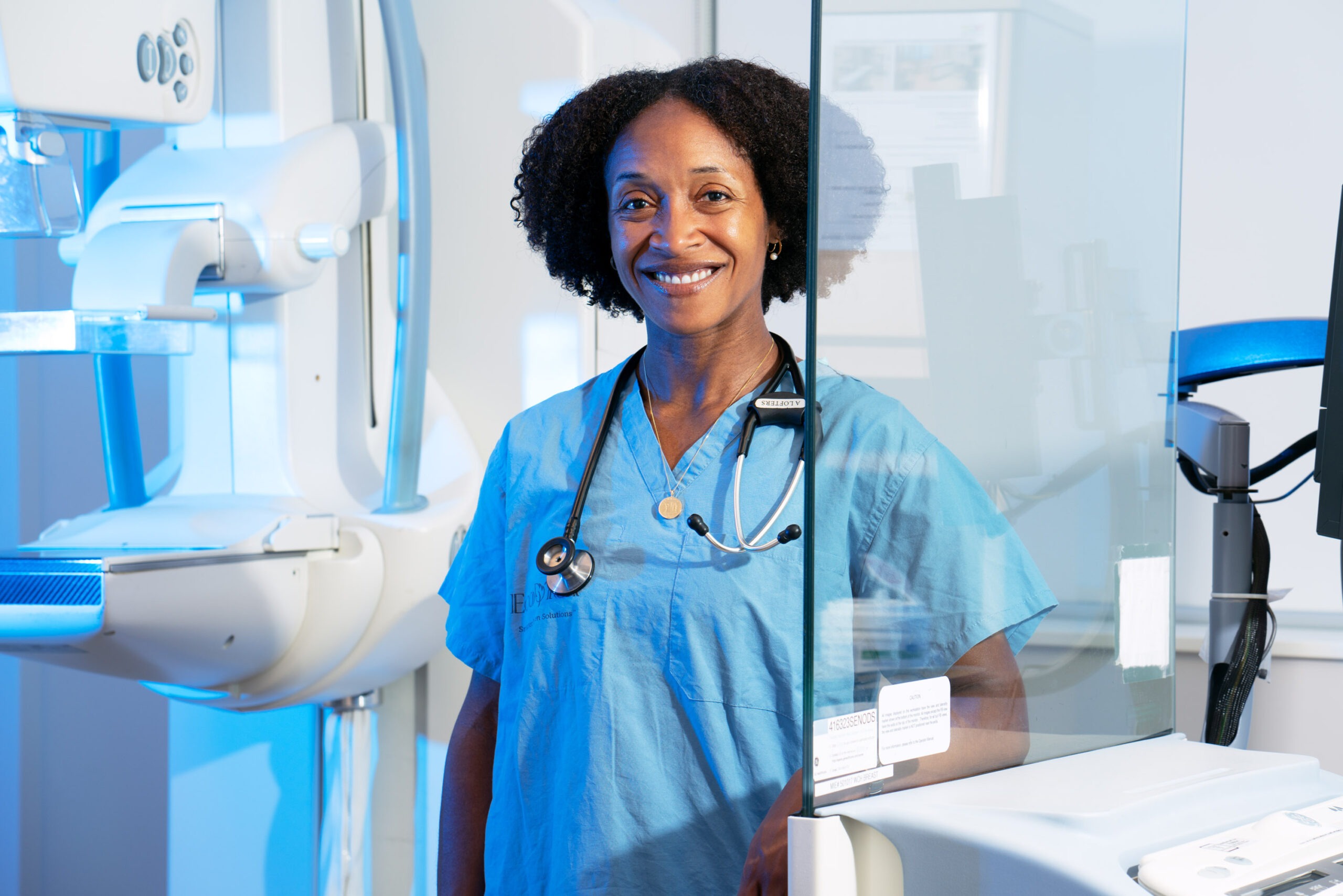Addressing healthcare inequities for Black women through culturally relevant and representative awareness and education

The inequities experienced by racialized communities often spill into the doctor’s office or hospitals, impacting how – and whether – they receive care. In fact, despite being disproportionately affected by breast cancer, Black women have lower cancer screening rates due to systemic barriers, such as stigma, discomfort, fear and mistrust.
The Peter Gilgan Centre for Women’s Cancers at WCH, in partnership with TAIBU Community Health Centre, Women’s Health in Women’s Hands Community Health Centre and The Olive Branch of Hope (TOBOH) want to change that. In October, they hosted their first Breast and Cervical Cancer Screening for Black Women event, which provided accessible, community-based mammograms and Pap tests to 46 Black women.
In addition to screening appointments and follow-up care, the event also provided mindfulness sessions, onsite social work support and the opportunity for women to speak directly with clinicians. Care providers and navigators were onsite as well to stay with patients throughout the experience.
“The women who participated provided heartwarming feedback about how much the event meant to them and how it created a safe and positive environment to get their screening tests done,” says Dr. Aisha Lofters, medical director at the Centre, and family physician, WCH. “They appreciated the non-clinical approach, and one woman told me, ‘This is how Black women should be treated.’”
In a post-event evaluation, the participants found the experience to be resoundingly positive: 97.6 per cent felt the event created a safe environment to undergo screening; 87.5 per cent felt empowered by the experience; 92.7 per cent felt an event specifically for Black women made them feel supported and heard regarding their health; and 100 per cent of respondents felt there should be more events tailored to supporting Black women in the healthcare system.
“If we can continue on this path to developing partnerships with other organizations, we can work closely together to ensure these communities feel seen and heard and know that the healthcare system is inclusive and desires to meet the needs of all people regardless of race, colour or creed,” says Leila Springer, CEO of TOBOH.
The Centre continued its partnership with TOBOH, as well as the Canadian Cancer Society and ReThink Breast Cancer, with the Best Health for Black Women: A Conversation About Breast Cancer and Gynecological Health event in March of this year. The event followed the tremendous success of Breast Health for Black Women in February 2022, this time expanded to include awareness and information on gynecological health in direct response to feedback from attendees, as gynecological conditions, such as uterine cancer, fibroids and endometriosis, have a disproportionate impact on Black women.
Empowering Black women with health and wellness information tailored specifically to them, the event brought together experts, organizations and community members for a conversation about breast cancer and gynecological health. Best Health for Black Women provided a safe, inclusive space for women to have their questions answered and access educational and community resources created by and for Black women. Attendees heard from medical experts and community members with lived experience through a keynote presentation, panels and digital stories. The patient voice and a strong theme of being your own advocate was woven throughout the evening.
“This is not about me,” says Dawn Barker-Pierre, TOBOH ambassador, breast cancer survivor and Best Health for Black Women panelist. “It’s about those coming after me. Those who feel silenced and feel they don’t have a voice. I’ll be that voice.”
Too often, resources and programs centre on whiteness, which leads to unwelcoming spaces that overlook Black women's unique experiences. The team at The Centre is actively working to change this by making Black women feel seen, heard and represented. These events have and will continue to make strides forward in reaching this goal by removing some of the barriers and enabling Black women to be the focus of their own healthcare in safe and supportive environments.

Headaches are one of the leading causes of disabilities in adults worldwide, and systemic discrimination impacts the ability of Black patients to receive diagnosis and follow-ups, resulting in limited differential diagnosis, underestimated prevalence rates, barriers to treatment and poorer health outcomes.